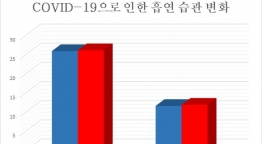Abstract
In this article, I looked at the life of Yun Il-sun, a representative medical scientist of modern Korea, and examined the following problems.
First, I took note of the position of the Korean people in the academic system of the Japanese colonial empire and restored the life of Yun Il-sun as specifically as possible. Yun was educated among Japanese people from elementary school to university. Although he received the best education at Old System High School and Imperial University and grew to be a prominent medical scientist, he could not overcome his identity as a colonized. Yun Il-sun, who moved from Keijo Imperial University to Severance Union Medical College, involved in activities founding of the Korean Medical Association and the Korean Medical Journal.
Second, I the meaning of 'culture' to the intellectuals in the periphery. Old System High School and Imperial University where Yun Il-sun was educated were the hotbed of 'culturalism.' Yun's college days were the heyday of Taisho Democracy, and students were attracted to Marxism, Christian poverty movement, Buddhist cultivation movement and so on. Yun sought to overcome the ideological of young people through the acquisition of 'culture.' The 'culture' emphasized by Yun had an enlightenment characteristic that emphasized education, but it also functioned as a'identity culture of educated elites.'
Third, I used the concept of 'colonial academism' and examined the aspects and characteristics of the colonial-periphery academic field, focusing on medicine. Yun Il-sun was a Korean professor at the Keijo Imperial University. He founded an academic society and published an academic journal for Koreans. He attempted to reproduce scholarship by doctoral dissertations. At the same time, several facts show that he was also in the affected area of 'colonial academism': the fact that he was kicked out of the Keijo Imperial University, the fact that the Korean Medical Association and the Korean Medical Journal were banned by Governor General, the fact that his students asked for doctoral degrees from Kyoto Imperial University where he studied. Yun Il-sun crossed the limits of 'colonial academism' and acted as the agent of empire. This was made possible by the characteristics of the academic discipline of medicine, the environment of the Severance Union Medical College, and personal traits of superior ability and indifference to politics.
I the postcolonial evolution of the 'colonial academism' and 'culturalism.' The mix of continuity and discontinuity from 'colonial academism' and the hybrid of Japanese academism and American academism, the Korean characteristics of 'postcolonial academism.' Yun tried to harmonize the American academism with the Japanese academism and the purity of academism. This effort was revealed as an emphasis on basic medicine and natural sciences. As combined with culturalism and indifference to politics, he was recognized as the symbol of ivory tower and academism.
색인어: 제6고등학교, 교토제대, 경성제대, 세브란스의전, 병리학, 조선의사협회, 조선의보
Keywords: The 6th High School, Kyoto Imperial University, Keijo Imperial University, Severance Union Medical College, Pathology, Korean Medical Association, Korean Medical Journal
1. 머리말
이 글에서는 근현대 한국을 대표하는 의학자인 윤일선(尹日善, 1896~1987)의 생애를 식민지기의 일본 유학과 의학 연구에 초점을 맞춰 살펴보고자 한다. 교토(京都)제국대학에서 배운 뒤 경성(京城)제국대학 조교수를 거쳐 세브란스의학전문학교 교수를 지낸 윤일선은 식민지 조선에서 가장 이름난 의학자였다. 해방 후에도 서울대학교 총장을 지내고 초대부터 6대에 걸쳐 학술원장을 맡는 등 명실상부하게 한국 학술을 대표하는 지식인의 자리를 지켰다. 하지만 윤일선의 생애와 활동에 초점을 맞춘 연구는 충분하지 않다[1]. 윤일선의 화려한 경력에 압도되어 그의 삶에서 최고 엘리트의 밋밋한 성공담 이상을 끌어내기는 어려울 것이라고 지레짐작해 버린 탓인지도 모르겠다.
이 글에서는 식민지라는 시대 조건에 유의하면서 윤일선이라는 걸출한 지식인의 삶과 한국 근대 학술의 모습을 음미하고자 한다. 그를 위해 다음 세 가지 점에 주목하겠다. 첫째, 윤일선의 생애를 가능한 한 구체적으로 복원하겠다. 자칫 굴곡 없어 보이는 삶에 돋보기를 들이대어 구석구석 배어 있는 시대상을 읽어내겠다. 제국 일본의 학제 속에서 최고의 지식인으로 자란 윤일선의 인생 여정에는 피식민자의 좌절과 제국의 지식인으로서의 영광이 교차하였다. 이 글에서는 다소 신변잡기적으로 비칠지라도 윤일선의 삶에 대한 전기(傳記)적인 서술을 시도하였다. 사소한 일화 하나하나가 윤일선이라는 문제적 인물의 삶을 이해하고 나아가 식민지라는 시대상을 파악하는 데 중요한 실마리가 될지 모르기 때문이다. 아울러 교토제국대학 기독교청년회 기숙사 일지에 남겨진 윤일선의 자필 메모를 새로이 발굴하여 식민지 지식인의 내면에 접근하고자 하였다.
둘째, 식민지-주변부 지식인에게 교양이 가지는 의미를 생각해 보고자 한다. 윤일선이 교육을 받은 구제 고등학교와 제국대학은 '교양주의'의 산실이었다[2]. 근대 일본 사회는 서구 문명의 지적 산물을 자신의 시각에서 압축하고 선별하여 정전(正典)화된 교양을 만들어내었다. 일본의 근대화가 기본적으로 서구 따라잡기였다는 점을 떠올린다면, 엘리트 양성 기관인 구제 고등학교와 제국대학에서 교양이 강조된 것은 당연한 일이었다. '교양주의'는 철학, 문학, 역사 등 인문학 습득을 통한 인격 완성을 도모하였지만, 동시에 '학력엘리트의 신분문화'를 낳았다[3]. 윤일선은 일생을 통하여 교양과 독서의 중요성을 강조하였다. 이 글에서는 일본인 엘리트 사이에서 교육을 받은 윤일선이 접한 교양의 내용과 그것이 그의 삶에 미친 영향을 살펴보겠다. 서구의 주변부인 일본에서 나름의 필요에 따라 구성된 교양이 다시 일본의 식민지였던 한국에서는 어떤 의미를 지녔는지에 대한 물음이 될 것이다.
셋째, 식민지-주변부 학문의 양태와 특징을 의학을 중심에 놓고 검토하겠다. 식민지 조선의 학술 혹은 학계를 설명하기 위해 '식민지 아카데미즘'이라는 개념이 제안된 바 있다. 학회나 학술지가 안정적이지 못하고 심지어 언어의 사용조차 자유롭지 못했던 조선의 상황을 아카데미즘의 결여로서가 아니라 '식민지 아카데미즘'으로서 파악하는 이유는, 근대 사회에서 아카데미즘이 가지는 불균등성과 비대칭성을 드러내고자 함에 있다[4]. 다만 기존 연구에서 주목한 '식민지 아카데미즘'의 특징은 역사학이나 경제학의 사례에서 추출된 것이다. 이 글에서는 윤일선의 활동에 초점을 맞춰 의학 연구에 '식민지 아카데미즘' 개념을 적용할 수 있는지를 검토하고자 한다. 이를 통해 의학 연구 그 중에서도 윤일선의 실천이 가지는 특징이 드러날 것이다.
제2장과 제3장에서는 윤일선의 삶에 대한 전기적 서술 방식을 기본으로 하면서도 각각 '교양주의'와 '식민지 아카데미즘'의 문제를 생각해 보고자 한다. 맺음말에서는 해방 이후 윤일선의 활동을 간단히 소개한 뒤, 한국 근현대를 대표하는 지식인의 삶의 궤적을 되짚어보고, 본론에서 살핀 '교양주의'와 '식민지 아카데미즘'에 대해서도 그것이 식민지 이후(postcolonial) 어떻게 전개되었는가를 포함하여 다시금 곱씹어보겠다.
자료제공: 대한의사학회
Copyright © 의약일보










